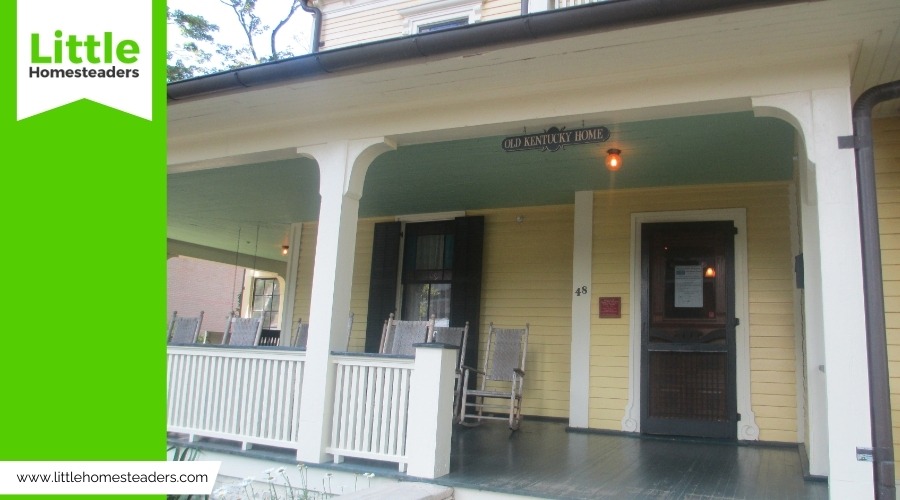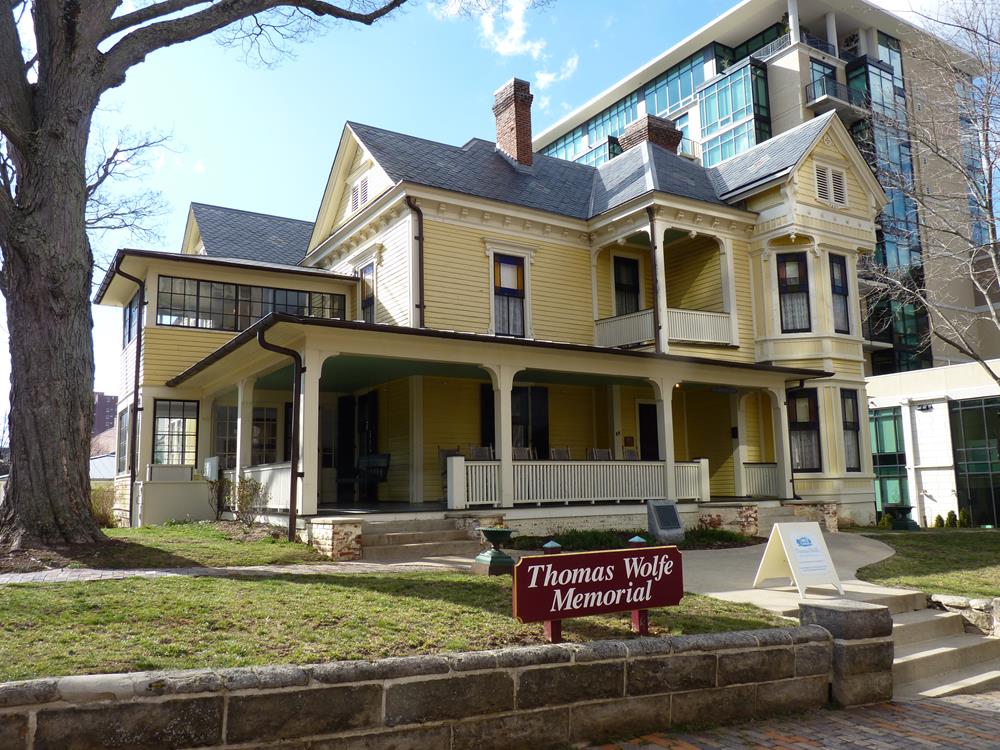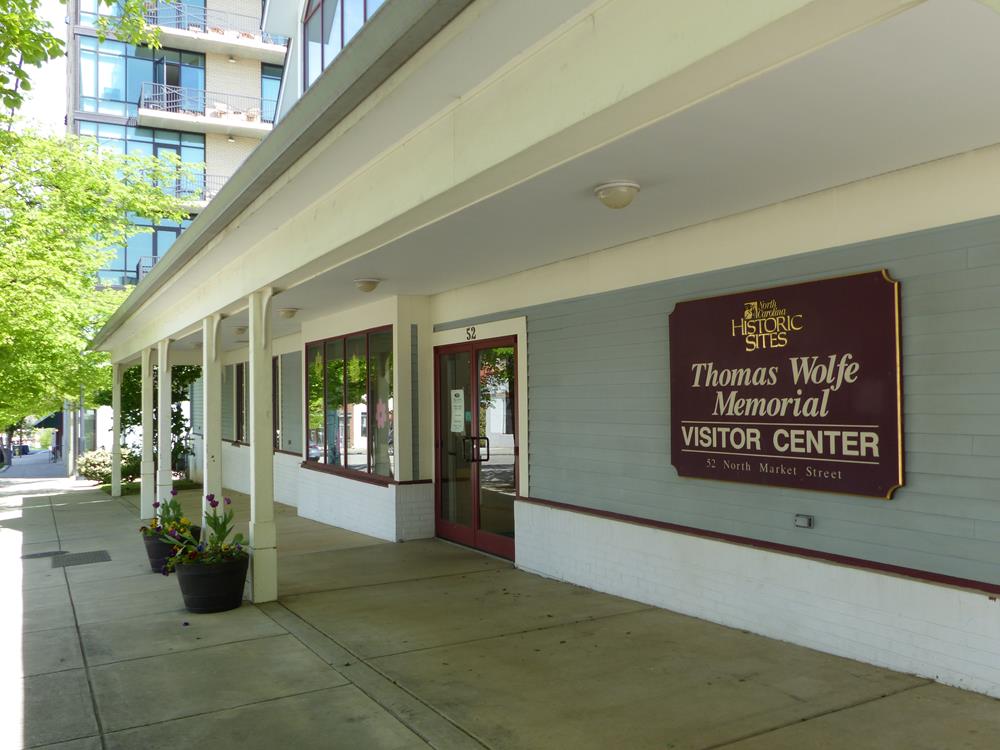A Tour of the Wolfe Homestead

Imagine stepping back in time to the early 1900s, where the hum of life in a bustling boardinghouse provides the backdrop to a young boy's dreams. This boy, who would grow up to become one of America's most celebrated authors, drew inspiration from every creaking floorboard, every guest's conversation, and the peculiar energy of his childhood home. Welcome to the Thomas Wolfe Memorial, a 29-room boardinghouse in Asheville, North Carolina, immortalized as "Dixieland" in Thomas Wolfe's classic novel, Look Homeward, Angel.
Located in the heart of Asheville, the Wolfe Homestead invites visitors to explore not just the walls of a house, but the stories that echo within them. It's more than a tour—it's a journey into a past that shaped one of literature's greats.
The Historic Boardinghouse
View this post on Instagram
Thomas Wolfe's works are deeply rooted in his personal experiences, and none more so than Look Homeward, Angel. Published in 1929, the novel is a thinly veiled autobiography, painting a vivid picture of his formative years in Asheville. The boardinghouse, fictionalized as "Dixieland," serves as a central character in its own right, embodying the complexities of family, community, and ambition. Wolfe's writing style, characterized by its sweeping prose and keen observations, has left an lasting influence on American literature. His ability to capture the essence of human experience—the joys, the struggles, the fleeting moments of beauty—resonates even today. Visitors to the Wolfe Homestead gain not just a glimpse into the author's childhood but an understanding of the environment that nurtured his creative genius. Beyond Look Homeward, Angel, Wolfe's later works, including Of Time and the River and You Can't Go Home Again, continued to explore themes of identity, memory, and the passage of time. The Thomas Wolfe House stands as a reflection to the enduring relevance of his storytelling. Walking through the Thomas Wolfe House is like stepping into the pages of history. Each of the 29 rooms tells a story, from the modest bedrooms where boarders stayed to the kitchen where meals were prepared for a bustling household. As you move from room to room, you'll encounter: One particularly moving space is Wolfe's childhood bedroom. Standing there, it's easy to imagine a young Thomas, gazing out the window and dreaming of worlds beyond Asheville. The house's preservation efforts ensure that these moments are not just imagined but felt, creating a deeply immersive experience for visitors.Thomas Wolfe's Literary Legacy
Exploring the 29 Rooms

Visiting the State Historic Site

The Thomas Wolfe Memorial is open to the public Tuesday through Saturday, offering an accessible way to dive into this rich literary and historical treasure. Admission fees are modest—$5 for adults and $2 for children—making it an affordable outing for families, students, and literature enthusiasts alike.
The on-site visitor center enhances the experience, featuring exhibits that delve into Wolfe's life, works, and the broader context of his time. Interactive displays and knowledgeable guides help bring the story to life, making it an engaging stop for visitors of all ages.
For those planning a visit, the best time to go is during the fall, when Asheville's vibrant foliage provides a stunning backdrop to the historic site. Seasonal decorations and special events, such as literary readings and historical reenactments, add an extra layer of charm to the experience.
Plan Your Visit
View this post on Instagram
The Thomas Wolfe Memorial is located at 52 N. Market Street, Asheville, N.C. 28801. Known as the "Old Kentucky Home," this historic boardinghouse has been preserved to reflect its appearance in 1916, complete with over 85% original furnishings and artifacts. Here's what you need to know to make the most of your visit:
Hours and Admission:
- Open Tuesday through Saturday, 9 a.m. to 5 p.m. (closed Sundays, Mondays, and most major holidays).
- Admission is $5 for adults and $2 for children. Pre-registered adult groups receive a discounted rate of $2.50 per person, and school groups are $2 per person.
Guided Tours:
- Guided tours of the boardinghouse are offered daily at the bottom of each hour. Reservations are encouraged for groups to ensure availability.
Facilities:
- Historic Structures: The boardinghouse, restored to reflect its early 20th-century origins, serves as the centerpiece of the site.
- Visitor Center: Features an exhibit hall, audiovisual programs on Wolfe's life, and art inspired by his work. A gift shop offers books and memorabilia.
- Outdoor Features: The site includes the Wolfe children's playhouse and is a stop on Asheville's Urban Trail. Bronze replicas of Wolfe's shoes mark the trail near the historic house.
- Accessibility: The first floor of the boardinghouse is wheelchair accessible, and the visitor center is fully accessible.
Programs and Events:
- October: Celebrate Wolfe's birthday month with special programming.
- December: Enjoy the angel-themed Christmas decorations and the annual Holiday Open House.
- January through April: Participate in the Wolfe Short Story Book Club discussions.
- Summer: Attend the Writers at Wolfe series featuring talks and book signings by local authors.
Asheville's Literary Attractions
The Thomas Wolfe Memorial is just one part of Asheville's rich literary landscape. A visit to this historic site pairs perfectly with other attractions that celebrate the city's cultural and artistic heritage.
- The Carl Sandburg Home: Located a short drive away, this site offers a glimpse into the life of another literary giant, with beautiful grounds and hiking trails to explore.
- The Asheville Urban Trail: This self-guided walking tour connects visitors to landmarks tied to Asheville's history, including sites related to its literary past.
- Riverside Cemetery: Here, visitors can pay their respects to Thomas Wolfe and other notable figures, enjoying the peaceful beauty of this historic resting place.
- The Asheville Museum of History: This museum provides a broader context for understanding the city's role in shaping cultural and historical narratives.
As you explore these sites, you'll discover a city that has long inspired creativity and innovation. Asheville's vibrant arts scene is a testament to the enduring legacy of figures like Thomas Wolfe, who drew so much from its unique character.
Conclusion
Visiting the Thomas Wolfe Memorial is more than just a history lesson; it's a journey into the life and mind of one of America's greatest authors. From the preserved rooms of the boardinghouse to the rich stories shared at the visitor center, every detail invites you to step into a world that shaped Wolfe's voice and vision.
As you leave the Wolfe Homestead, you might find yourself reflecting on the power of place—how the spaces we inhabit shape who we are and the stories we tell. For Thomas Wolfe, Asheville's "Dixieland" was more than a home; it was a crucible of creativity, a foundation for a literary legacy that continues to inspire.
So why not plan your visit? Take a step back in time, walk in the footsteps of a literary giant, and discover the stories waiting to be uncovered at the Thomas Wolfe Memorial. It's an experience that's both profoundly historical and deeply human—a reminder that every place, no matter how small, has the potential to inspire greatness.




